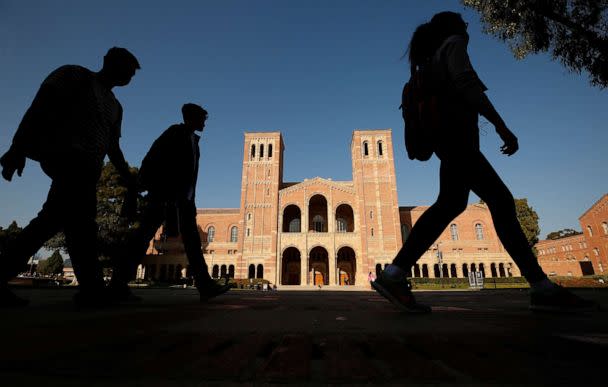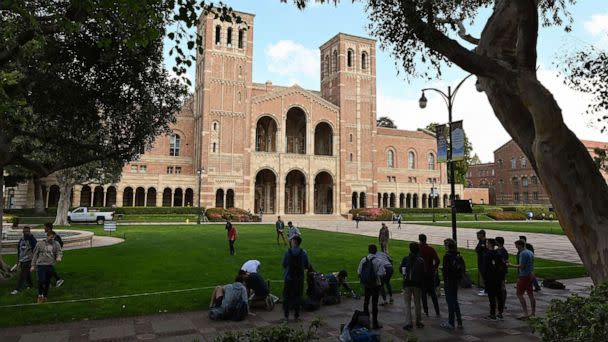Battles over politics, race, LGBTQ issues have made teaching harder, according to new survey
The so-called culture wars are deeply affecting schools across the country, according to a new UCLA report that surveyed principals from across the country.
The report, released Wednesday, showed a vast majority of principles reporting "substantial and growing political conflict" that's making it harder to combat misinformation and interfering with productive discussions in classrooms.
Over the last year, a conservative-led effort to target topics on race, oppression and the LGBTQ community have prompted state legislators and some school boards across the country to adopt policies that limit or restrict dialogue or curriculum on certain identities.
Principals in "Purple" districts, or politically divided communities, often faced more challenges than others, according to the survey.
The report found that these communities have been targeted by "small groups of vocal parents and community members" who are connected to conservative national organizations to "aggressively" challenge or threaten educators on such topics.
According to one principal in Minnesota who was quoted in the report: "My superintendent told me in no uncertain terms that I could not address issues of race and bias etc. with students or staff this year. He told me, 'This is not the time or the place to do this here. You have to remember you are in the heart of Trump country and you’re just going to start a big mess if you start talking about that stuff.'"

Almost two-thirds or 64% of principals said parents and community members have challenged the information or media sources used by teachers in their school.
Nearly half of all principals – and 63% of principals in Purple communities – said parents or community members "sought to limit or challenge …teaching and learning about issues of race and racism."
MORE: Critical race theory in the classroom: Understanding the debate
Between 2018 and 2022, heightened community-based contention over teachers’ use of media sources and information grew almost three-fold in Purple districts from 12% to 35%, the survey found.
In Purple communities, almost a quarter (23%) of principals reported their school board or district leaders took action on limiting teaching and learning about race and racism.
Nearly half of all principals reported efforts to challenge LGBTQ+ rights in the 2021–2022 school year. In Purple communities, principals were nearly twice as likely to say such attacks occurred multiple times than in Red or Blue communities.
According to the report, the communities in which principals reported high rates of hostility and disrespect towards LGBTQ+ youth were also the communities in which principals reported fewer efforts to address these concerns.

Principals say these new policies have not only deeply affected the actual content being delivered in the classroom but also the way students responded to one another.
MORE: What a national 'Don't Say Gay' bill would mean for education
Roughly 69% of principals said students made derogatory remarks to liberal or conservative classmates, a problem that was much more likely to occur repeatedly in Purple communities.
Principals at schools in Purple communities were also more likely than Red and Blue districts to report high levels of political conflict.
One Iowa principal said: "I had to come down and help the teacher, like a veteran teacher, who’s never had problems having discussions. And the kids were just so stuck in their trenches, they weren’t willing to be open to even listen to the other side."
Battles over politics, race, LGBTQ issues have made teaching harder, according to new survey originally appeared on abcnews.go.com
